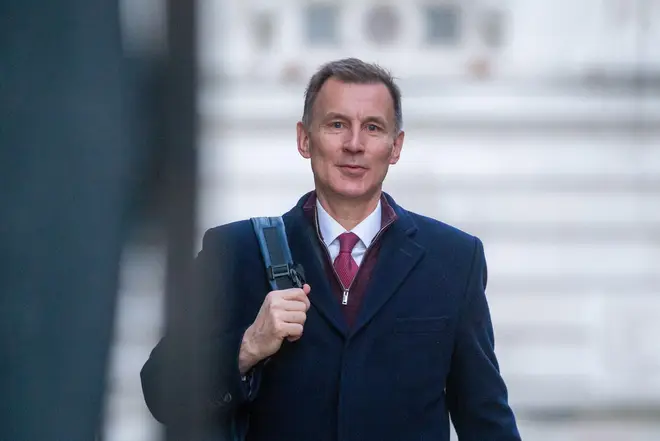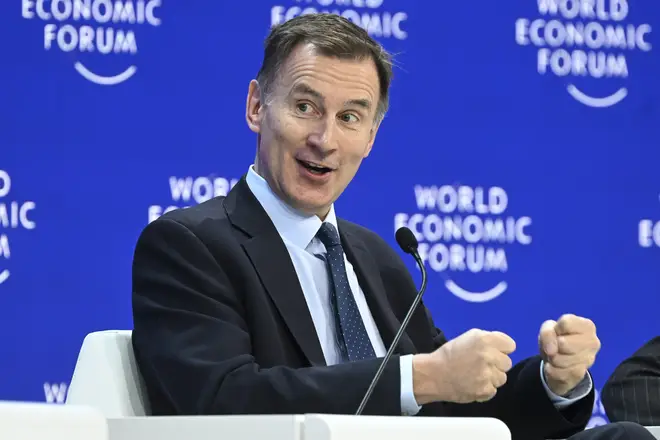
Nick Abbot 10pm - 1am
23 January 2024, 10:14

The government borrowed significantly less money last year than expected, which could pave the way for tax cuts.
The government borrowed £119.1 billion over the year to December 2023, according to the ONS, which is lower than the £124.1 billion forecast by the Office for Budget Responsibility (OBR).
Meanwhile public sector borrowing hit £7.8 billion last month, according to the Office for National Statistics (ONS).
That was less than the £11.1 billion many onlookers had expected, and the lowest amount the government had borrowed in any December since 2019.
The government paid £4 billion in interest on loan repayments in December, which is £14.1 billion less than a year earlier. That is largely because inflation - as measured by the Retail Prices Index - has dropped from its peak.
The lower borrowing figures have led some economists to suggest that tax cuts could be on the way when Chancellor Jeremy Hunt unveils his Spring Budget in March.
Read more: Jeremy Hunt hints at tax cuts ahead in March Budget, as he admits voters are 'angry'

Watch Again: Chancellor Jeremy Hunt joins Paul Brand | 06/01/24
Ruth Gregory, deputy chief UK economist at Capital Economics, said: "December’s better-than-expected public finances figures brought some cheer for the chancellor … and will give him a bit more wiggle room for a big pre-election splash in the spring budget."
Samuel Tombs, chief UK economist at Pantheon Macroeconomics, added that "falling interest payments create scope for tax cuts which the gilt market can tolerate".
Chancellor Jeremy Hunt said last week that he wanted the UK's "direction of travel" to follow countries whose economies are growing faster than Britain, which tend to have lower taxes.
Mr Hunt told an audience at the World Economic Forum in Davos on Thursday that countries with lower taxes were "more dynamic" and deliver more money for public services.

Total net debt was £2.69 trillion at the end of the year, which is around 97.7% of the size of gross domestic product (GDP).
Despite the fall in net borrowing last month, the debt to GDP ratio is 1.9 percentage points above last December and still at levels not seen since the early 1960s.
Cutting taxes could deliver the Conservatives a boost as they seek to fend off Sir Keir Starmer's resurgent Labour party at the next general election, expected to take place later this year.
Chief Secretary to the Treasury Laura Trott said: "Protecting millions of lives and livelihoods during Putin's energy shock and a once-in-a-century pandemic has created economic challenges.
"However, it is right that we pay back these debts so future generations are not left to pick up the tab.
"Because of this Government's decisive action, the economy is now beginning to turn a corner. Inflation has more than halved.
"Debt is on track to fall as a share of the economy. And we have been able to afford tax cuts for 27 million working people, and an £11 billion tax cut to drive business investment."